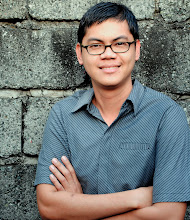"Flattery will get you everywhere." -Mae West
Here's a very interesting take by Franko Pestano about the surging of chess in Vietnam and consequently, in the world scene. Just like many of us, Pestano wonders how the Vietnamese done it for their chess in such a short span of years. He came up with this simple solution. It's all about investment.
My own little take here is, with the help of a little bit of flattery as well. For years, many Filipino English sports writer wrote so many good things about their Vietnamese counterpart just to shake the shoulders of our own sports official to revive chess in the Philippines. You flatter the organizations and programs first and not the players and the players, the organizations and the country will all get the benefit in the end. You see, the Philippines is a second world country, compare to Vietnam who is still a third world country and all that flattery from other nation, (more particularly from their neighbor country, the Philippines), inspire them to spend and risk materials and time for their players.
Vietnamese too love reading stories and article from other nation on how they put an effort on something they know they can excel about and they are not even aware that other country are actually envying them! Same thing with pool in the Philippines. We love reading stories from the US about Efren Reyes, Amang Parica, Django Bustamante and how America envy this tiny country on the investment and programs we made for pool to discover and develop new world class players that the very flattery itself is enough to make us the power house in pool!
Perhaps Filipino sports writers, some of the most influential and most read in Asia also played a major part in the insurgence of Vietnam chess in the region? Perhaps. Yes, perhaps.
THE Philippines and Vietnam have the same budget for chess—5 million. The big difference is that the amount for the Philippines is in pesos, while for Vietnam, it’s in US dollars. Yuck!
Vietnam adopted the old Soviet model and offers a monthly allowance to children as young as four who excel in tournaments.
The result? Two of their brightest talents made waves in the last two major tournaments.
Le Quang Liem, only 19 and is ranked higher than Wesley So at No. 55 in the world, tied for first at the Moscow Open in February. He followed that up by snaring the Aeroflot Open, the strongest Open tournament of the year. That qualified him for the Sparkassen Chess Meeting in Dortmund, Germany, an elite event.
“Chess clubs are spread throughout the political structure of provinces and cities,” said Casto Abundo, deputy president of the Asian Chess Federation. “Each club has its own budget at its disposal and concentrates on the development of the youth. They are now harvesting the fruits of their labor.”
...The coach of Vietnam’s national chess team, Mikhail Vasyliev, a Ukrainian, said the Vietnamese government’s approach to chess works because “efforts are directed at the most promising players from a young age, rather than at those children whose parents have the money to pay for classes.”
Read the full article, Vietnam Chess Factory at SunStar.com












